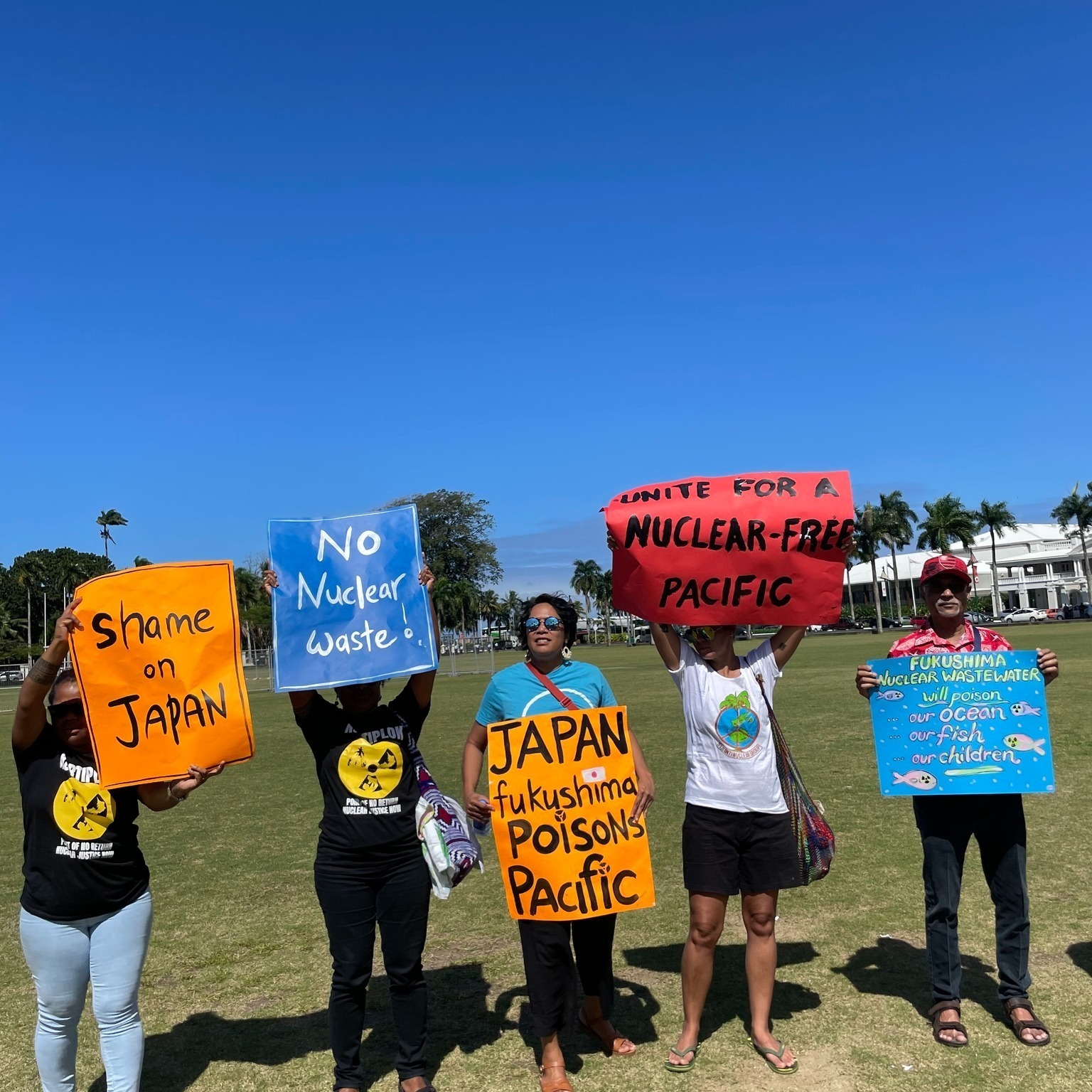Civil society groups are urging Pacific leaders to address two key issues during their retreat in Vava’u today – Japan’s ongoing disposal of treated nuclear wastewater from Fukushima and the contentious debate over deep-sea mining.
Speaking after a Civil Society Organisation (CSO) dialogue with Forum leaders in Nuku’alofa, Pacific Network on Globalisation’s (PANG) Joey Tau expressed hopes that the Leaders would address these matters with the seriousness they deserve.
“We hope the leaders give serious consideration following the PALM Summit,” said Tau.
“There are a number of demands from civil society regarding Fukushima’s ongoing disposal of treated nuclear water. We’re pushing for the reinstatement of the expert panel created in 2021, which hasn’t been involved in discussions with Japan and TEPCO recently. It’s promising that Forum officials have acknowledged this, and we hope the leaders will agree to bring back the expert panel,” Tau told journalists in Nuku’alofa.
Tau reiterated civil society’s call for the suspension of Japan as a Forum Dialogue Partner, highlighting Japan’s disregard for regional concerns about the nuclear wastewater issue.
“The Forum has a history of suspending members, and last year, we urged the leaders to review Japan’s partnership given it continues to act despite civil society’s objections. Some Pacific leaders have openly expressed reservations about Japan’s actions,” he added.
He also emphasised the long-term impact of nuclear waste disposal on the Pacific, a region still grappling with the effects of nuclear testing in French Polynesia and the Marshall Islands.
“If this continues for the next 30 years, the accumulated impacts will be severe. This region is still dealing with the challenges of nuclear testing.”
Sharon Bagwan Rolls from the Pacific Women Mediators Network also voiced concerns about the movement of nuclear waste in the Pacific Ocean.
“The 15th Triennial Conference of Pacific Women and the Ministerial reaffirmed the need for a Nuclear Weapon-Free Pacific and addressed the impacts of the legacy of nuclear testing, particularly on women’s health,” she said.
“We are calling on Forum Leaders to stand firm on the Treaty of Rarotonga, as the transportation and movement of nuclear waste in our oceans is a serious concern”
Turning to deep-sea mining, Tau noted the differing positions within the Pacific.
“It’s a very sensitive issue. PANG and civil society will continue to call for caution. Some of our leaders have already voiced concerns. We hope that civil society will be included in future discussions, not just the industry and technical CROP agencies,” Tau said.
Tau made it clear that these two issues – Fukushima and deep-sea mining – remain top priorities for civil society groups as they seek a more inclusive approach in regional decision-making.














